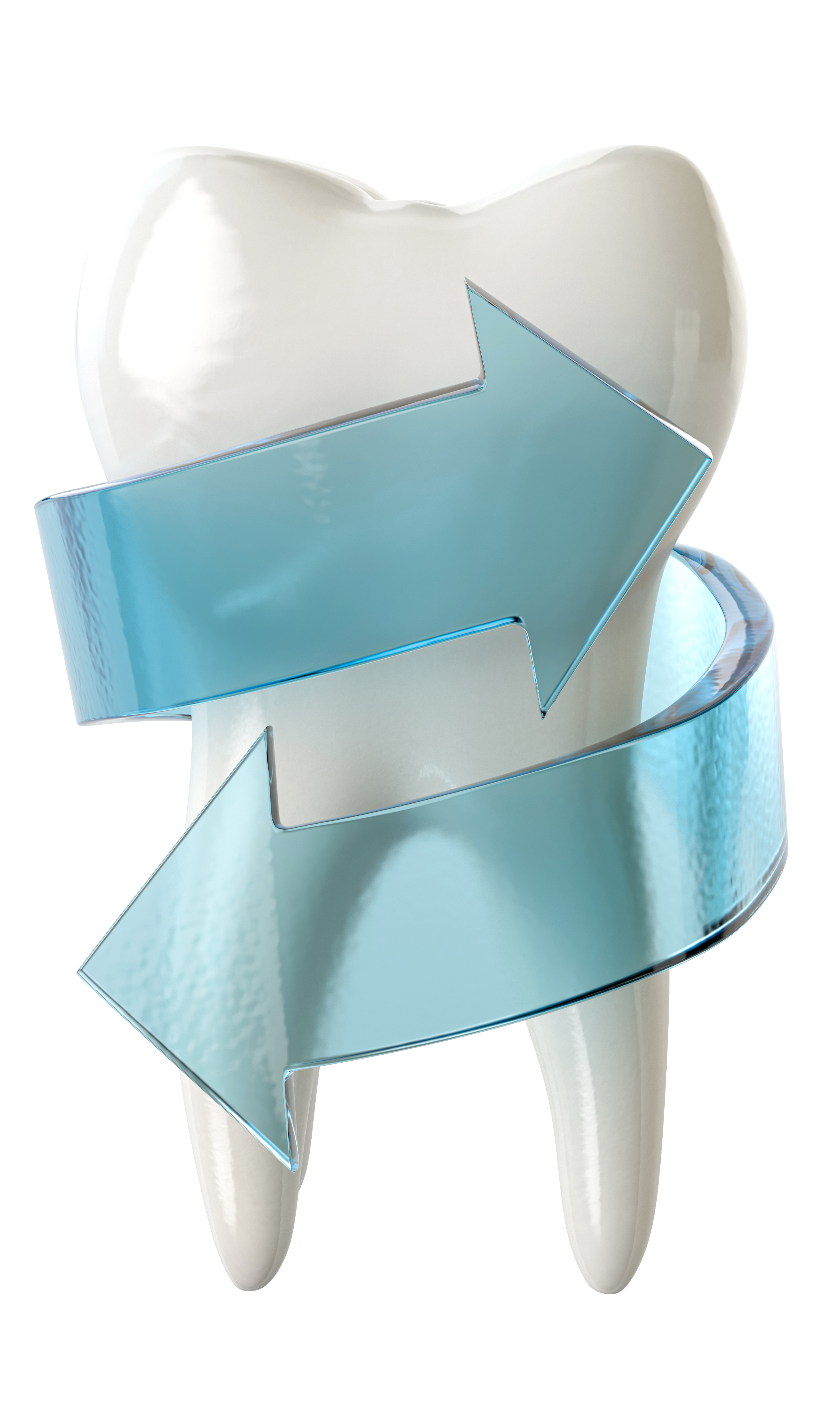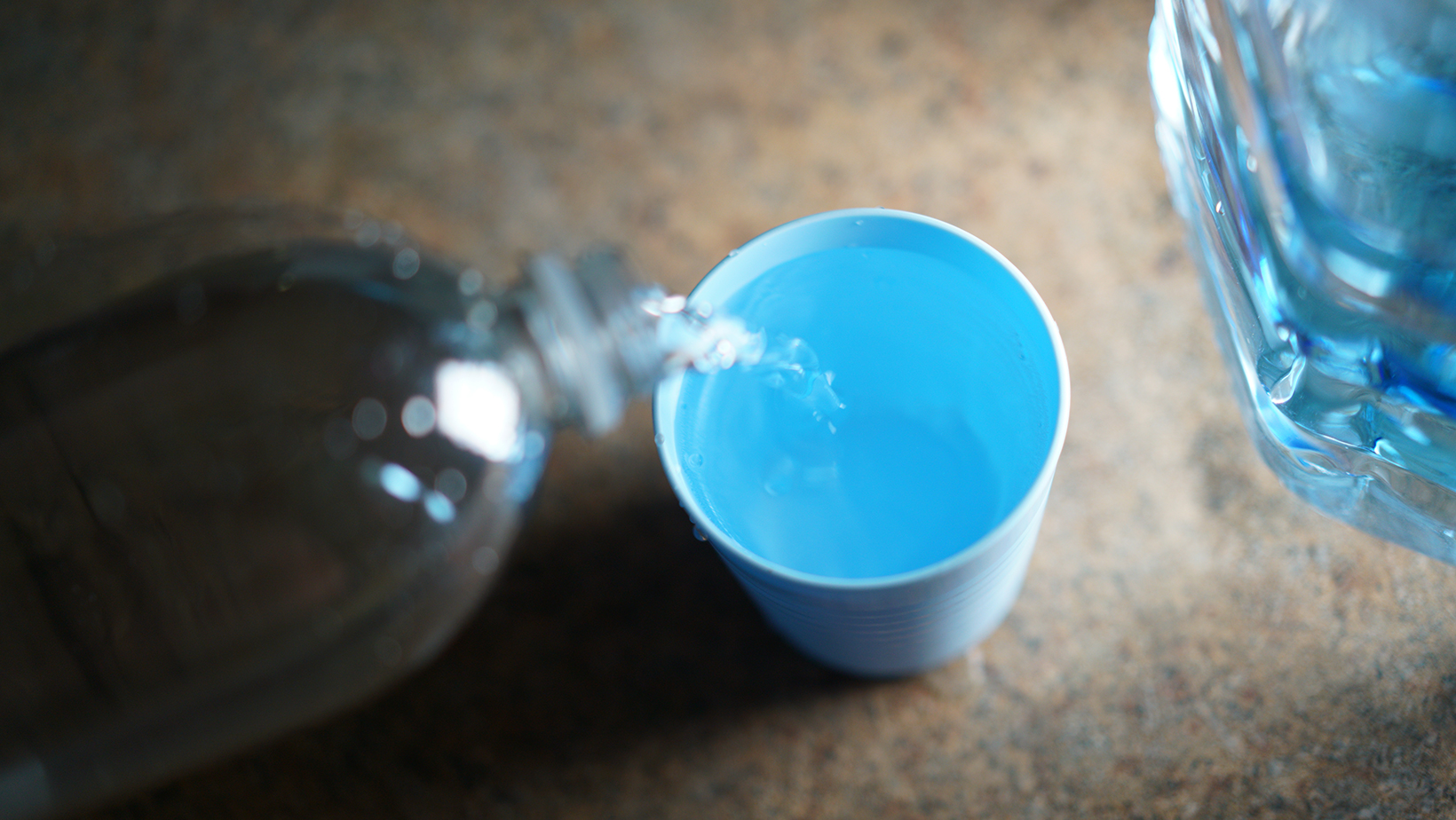Dentists have recommended fluoride for reducing oral decay for more than seven decades. But in recent years, there has been controversy over the safety and necessity of fluoride. Some say it can actually cause health problems, and that those risks outweigh the dental benefits.
We will go over what fluoride does for teeth and why there are concerns. Then, we’ll explain why dentists say fluoride should remain a regular part of our dental care.

A Back Story on Fluoride
In 1901, a dentist named Frederick McKay noticed brown stains on children’s teeth in Colorado Springs. After working for years to understand the cause of the staining, he discovered a link to naturally occurring fluoride in Colorado Springs’ water. He also found that those same patients tended to have strong enamel and very little tooth decay.
In the 1930s, researchers elsewhere were looking at why people in certain parts of the country didn’t have much dental decay but had some staining on their teeth. They concluded that fluoride was naturally present in the water those patients were drinking.
As public health experts learned of this research, they recommended that cities add fluoride to their water supplies. The first to do so was Grand Rapids, Michigan, in 1945, and after a 10-year study, area dentists found that kids had 60% fewer cavities than they had a decade before.
It took some time to perfect the amount of fluoride in water that would not stain teeth but still deliver dental benefits. Very high levels of fluoride caused erosion of tooth enamel, which predisposed patients to staining from things like coffee. But at slightly lower levels, fluoride was found to prevent cavities, and teeth remained white. After some trial and error, the U.S. Public Health Service recommended the ideal, safe amount of fluoride in community water should be 0.7 parts per million.

What Does Fluoride Do For Teeth?
Dental plaque is a thin, sticky substance that forms when sugar or other carbohydrate-dense foods are not brushed away. As plaque builds up, it starts to demineralize the teeth, meaning that it eats away at the minerals that make up the enamel on our teeth. Without that protective enamel, teeth are exposed to bacteria that cause decay.
Fluoride decreases the amount of plaque on teeth, slows down the demineralization process, and can re-mineralize the enamel.
Essentially, fluoride preserves the health of our teeth by:
| Helping to prevent cavities Strengthening weakened tooth enamel | Reversing early tooth decay Limiting the growth of oral bacteria |
Having adequate fluoride at a young age strengthens teeth, which enables kids to have an early start to better oral health. Fluoridated water especially benefits children who live in lower-income areas, who might not have access to regular dental care or can’t afford oral hygiene essentials like toothpaste and floss.
Why Do Some People Think Fluoride is Bad?
In recent years, researchers have found evidence that too much fluoride can harm the teeth as well as overall health. When people ingest more than the recommended amount, they are likely to experience a condition called fluorosis. Dental fluorosis happens from mild overexposure and causes stains on the teeth, but isn’t a health concern. However, long-term ingestion of too much fluoride can cause brittle bones and increase the risk of fractures. This level of exposure only tends to happen when people use water containing high levels of fluoride.
In studies where scientists tested subjects exposed to high levels of fluoride in their drinking water (more than double the recommended amount), they found that children’s IQ levels may also be affected. But there is not enough data from these studies to be conclusive, and some results were based on animal models and on subjects from non-U.S. countries such as China, India, Iran, Pakistan, and Mexico — where the condition of their water supply was unknown.
When administered in recommended amounts, we have much more evidence proving the benefits of fluoride than we have of its dangers.
Evidence That Fluoride is Essential for Oral Health
One way to tell what fluoride does for teeth is to examine countries that don’t have it in their water supply. In 2011, Calgary discontinued their fluoridation program and saw dramatic increases in cavities in kids; many of their children needed operative dental care within a short period of time. In 2024, they announced that fluoride will soon be added back into their water system.
Likewise, Israel removed fluoride from their water in 2014 and saw dental caries in kids skyrocket within five years. Despite the country’s Ministry of Health’s approval to reintroduce fluoridated water, it has not yet happened.
In Australia (2018), researchers found that preschool-age children who didn’t have fluoridated water had an 86% higher rate of potentially preventable hospitalizations for serious dental conditions. Around 90% of Australia is equipped with fluoridated water, so efforts are being made to ensure more citizens have access to it.
By analyzing research regarding people without fluoridated water, we can see that fluoride in water is beneficial. U.S. studies show that in our country, where fluoridated drinking water is available, there are 30% fewer caries in primary teeth and 12% less in permanent teeth.
Is Fluoride Toothpaste Safe?
Due to the health concerns regarding fluoride, some people think that non-fluoridated toothpaste is a safer option. But while fluoride-free toothpaste can help clean teeth, it doesn’t protect against decay like fluoride does.
Even though most of us have fluoride in our water supply, toothpaste delivers a higher concentration to the teeth, which helps strengthen enamel and fight bacteria that cause cavities. Concern with higher concentration levels comes up when fluoride is ingested; as long as it’s not swallowed, it’s perfectly safe — and extremely beneficial for the teeth.
The American Academy of Pediatrics says as soon as a baby’s teeth start to come in, parents should brush them with a tiny smear of fluoride toothpaste, then graduate to a pea-sized amount at age 3. Fluoride toothpaste only becomes a concern if swallowed excessively, so these tiny amounts are okay for small children (although they should be taught to spit the toothpaste out at a very young age). The earlier kids start to protect their teeth with fluoride, the stronger their teeth can become!

Is It Necessary to Get Fluoride Treatment at the Dentist?
Before U.S. cities implemented fluoride in their water systems, dentists recommended concentrated fluoride treatments at routine checkups. But now that most people get enough fluoride via water and toothpaste, those treatments aren’t always necessary.
However, some patients may still benefit from fluoride treatment if their teeth are especially vulnerable or they have certain health problems, such as:
- Older adults
- People who smoke or chew tobacco since it compromises the enamel and increases tooth decay
- Those with a history of cavities or gum disease
- Patients with dry mouth resulting from certain medications or conditions that affect the saliva glands
- People with diabetes, since high blood sugar levels can increase the chances of gum disease and tooth decay
- Anyone who has difficulty maintaining oral hygiene, such as someone with Parkinson’s or dementia, or children with special needs
Still Concerned About Fluoride? Ask a Dentist for Advice.
With so much conflicting information about fluoride, it’s understandable if you still have concerns. But before buying fluoride-free drinking water and toothpaste, talk to a dentist. They will be up-to-date on the latest research and be able to tell you whether fluoride is safe for you or your family member. Contact a dentist near you now to schedule an appointment.


